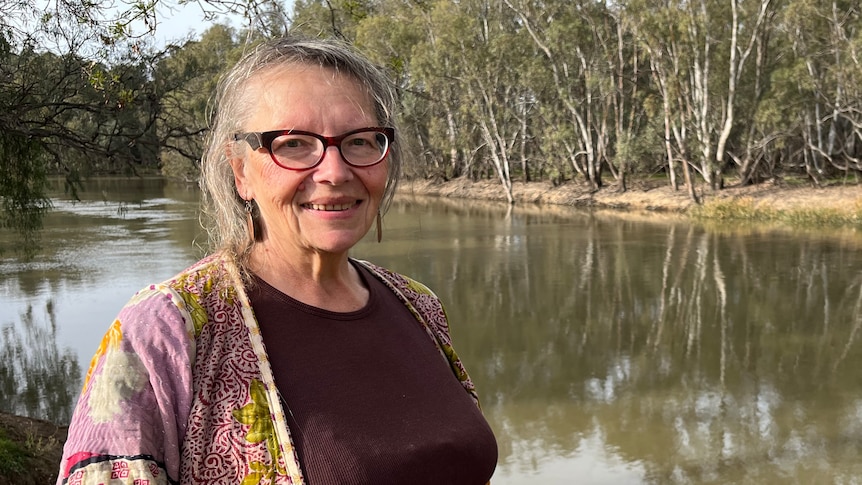At this time of year, fig trees have no leaves and are nothing more than a rise of branches sprouting from the ground. But it’s the ideal time for propagation and that gets Victorian, Yasmin Sadler excited.
Key points:
- Yasmin Sadler has been scouring Melbourne for heritage fig trees
- The Gippsland woman has just embarked on an interstate expedition to find even more heritage fig trees
- She relies on social media and word-of-mouth to help track down old fig trees
It’s not just any fig tree that the Orbost resident is looking for — she’s trying to find the heritage fig trees that were introduced to Australia by migrants.
“They brought their best with them and they are still in our landscape, so my passion is to preserve them, to hear their stories and see them being grown again,” Ms Sadler said.
The self-confessed “fig hunter” started looking for heritage fig trees in Melbourne where she found 100 and was able to produce about 300 plants from cuttings.
“Out of all the trees I visited, they were all different,” she said.
“We thought there’d be black Genoas or other common figs, but we haven’t found any of those at all.”
The 300 figs that Ms Sadler has propagated have been shared with others.
“My fig tribe has moved on up into the hills of Gippsland to become firebreaks. Also in Orbost, there’s a gentleman who started a fig farm based on my plants,” she said.
fig fossicking interstate
Ms Sadler is embarking on an interstate expedition to find even more heritage fig trees.
She has been planning to head from Victoria to Marree in South Australia in search of fig trees that were planted by the cameleers, which may include traveling on the Oodnadatta Track.
She may also follow up on tip-offs that there are heritage trees in Alice Springs, Ceduna, Adelaide, and the Grampians.
“As soon as we collect cuttings, I will prepare them for travel and head straight to the nearest post office,” Ms Sadler said.
“They will be sent out to fig growers in different parts of Australia where they will grow them too and help to try to identify them.”
First stop Euston
In Euston, New South Wales, Ms Sadler caught up with Mick Harding at a fig tree on the Murray River.
Mr Harding, aged in his 90s, said it was grown from a cutting taken from a heritage tree in nearby Cole Street, that was planted in the 1870s.
Walking with wild macadamias
“It came up on a paddle steamer,” he said.
“I reckon it would have come from Renmark or somewhere in SA, Goolwa.”
Mr Harding said the Cole Street property had belonged to his late wife’s grandparents and the fig tree was propagated many times and then given to people around the district.
“It’s lovely eaten fresh, dries lovely and it’s a big fig,” he said.
Ms Sadler said the stop in Euston was worthwhile and uncovered exactly the type of fig information she had been looking for.
“‘An 1800s fig tree that has been propagated and passed on by people who love the fig and, by loving it, it has survived,” she said.
“Now we can find the identity of it, whatever it is. It has been loved and can be part of our Australian heritage.”
.
